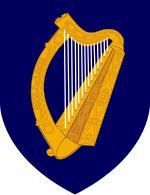Ireland/Using Structures: Unterschied zwischen den Versionen
Markierung: 2017-Quelltext-Bearbeitung |
Markierung: 2017-Quelltext-Bearbeitung |
||
| Zeile 50: | Zeile 50: | ||
Im Englischen wird dafür ein '''Question Tag''' angehängt: | Im Englischen wird dafür ein '''Question Tag''' angehängt: | ||
<span style="display:inline-block;width: | <span style="display:inline-block;width:15.5em;">Kian <span style="color:orange;font-weight:bold;">is</span> an Irish name,</span><span style="display:inline-block;width:6em;"> <span style="color:orange;font-weight:bold;">isn't</span> it?</span> - Yes, it is. | ||
<span style="display:inline-block;width: | <span style="display:inline-block;width:15.5em;">We '''can''' do this,</span> <span style="display:inline-block;width:6em;">'''can't''' we?</span> - Yes, we can! | ||
<span style="display:inline-block;width: | <span style="display:inline-block;width:15.5em;">You <span style="color:red;font-weight:bold;">have done</span> your homework,</span><span style="display:inline-block;width:6em;"><span style="color:red;font-weight:bold;">haven't</span> you?</span> - Of course I have! | ||
Wenn der Aussage positiv war, wird der ''question tag'' negativ. Bei einer verneinten Aussage, aber positiv: | |||
<span style="display:inline-block;width:15.5em;">You <span style="color:red;font-weight:bold;">haven't brought</span> your bag,</span><span style="display:inline-block;width:6em;"><span style="color:red;font-weight:bold;">have</span> you?</span> - Of course I have! | |||
<span style="display:inline-block;width:15.5em;">Kaden <span style="color:orange;font-weight:bold;">isn't</span> Irish,</span><span style="display:inline-block;width:6em;"> <span style="color:orange;font-weight:bold;">is</span> it?</span> - But it is. It means "battle" in Irish and Scottish. | |||
Dabei wird der question tag immer aus dem Hilfsverb des Aussagesatzes gebildet. Bei Vollverben im Simple Present verwendet man '''do'''. | |||
<span style="display:inline-block;width:15.5em;">You <span style="color:orange;font-weight:bold;">play</span> football,</span><span style="display:inline-block;width:6em;"> <span style="color:orange;font-weight:bold;">don't</span> you?</span> - Yes, I <span style="color:orange;font-weight:bold;">do</span>. | |||
<span style="display:inline-block;width:15.5em;">You <span style="color:orange;font-weight:bold;">don't want</span> this sandwich,</span><span style="display:inline-block;width:6em;"> <span style="color:orange;font-weight:bold;">do</span> you?</span> - You can have it. | |||
=== Simple Past=== | === Simple Past=== | ||
Version vom 11. November 2020, 06:52 Uhr
In this unit we're going to revise simple past and present perfect.
By contrasting them, we can see, what the differences between these two tenses are.
Revision
Present Perfect
Have you visited Ireland yet? - No, we haven't had time. (More about Present Perfect.)
You need have/ has und die 3. Form des Verbs (→ irregular verbs!)
Put the verb in the present perfect. (p35 ex 5)
1. It's the first time that they have been|'ve been (be) to Ireland.
2. Ethan and his mother haven't visited (not, visit) Dublin before.
3. Mrs Murphy has (???) always wanted(want) to know more about her family.
4. Have(???) you tried(try) any Irish sports yet, Ethan?
5. Unfortunately they haven't learned(not, learn) any Irish yet.
6. Mrs Murphy has not bought|hasn't bought(not, buy) any bus tickets yet.
7. Clare has recommended (recommend) lots of sights for them today.
- visit Trinity College ✓
- see Book of Kelts
- get on a hop-on hop-off bus ✓
- cross Halfpenny Bridge ✓
- drink a Guiness ✓
- take a distillery tour
Look at the ToDo list and say what they have done.
They have already visited (already, visit) Trinity College.
But they haven't seen (see) the Book of Kelts yet.
They have just got|have just gotten (get) on a hop-on hop-off bus tour.
There they have crossed (cross) the famous Halfpenny Bridge.
And they have() already drunk(drink) a Guiness.
They haven't taken (take) a distillery tour yet.
Question Tags
Wenn man eine Aussage betonen will, kann man eine Bestätigungsfrage benutzen. Im Deutschen wird dafür z. B. ein …, oder? verwendet.
Im Englischen wird dafür ein Question Tag angehängt:
Kian is an Irish name, isn't it? - Yes, it is.
We can do this, can't we? - Yes, we can!
You have done your homework,haven't you? - Of course I have!
Wenn der Aussage positiv war, wird der question tag negativ. Bei einer verneinten Aussage, aber positiv:
You haven't brought your bag,have you? - Of course I have!
Kaden isn't Irish, is it? - But it is. It means "battle" in Irish and Scottish.
Dabei wird der question tag immer aus dem Hilfsverb des Aussagesatzes gebildet. Bei Vollverben im Simple Present verwendet man do.
You play football, don't you? - Yes, I do.
You don't want this sandwich, do you? - You can have it.
Simple Past
Contrasting Simple Past and Present Perfect
- Fact File
- Geography
- History
- Traditions (typical customs and holidays)
- Irish Humour
- Limericks
- Planning a holiday
See also
- Kontrastierung (Gegenüberstellung) von Present Perfect und Simple Past
- Question Tags (…, isn't it?)




